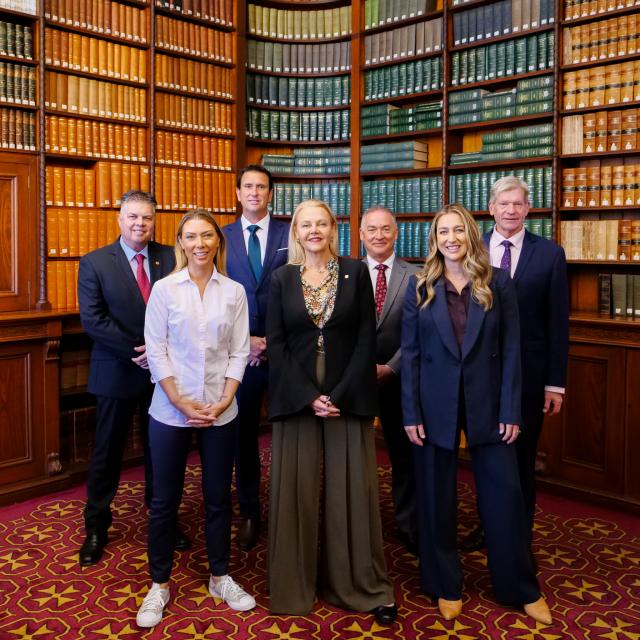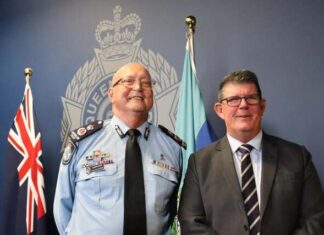Research is already well underway for the bipartisan Youth Justice Reform Parliamentary Committee, as well meetings with those with personal and professional experiences who are determined on seeing resolutions to the trauma being experienced by Queenslanders.
The committee is currently focused on developing its evidence base and identifying potential solutions before consulting more broadly with Queenslanders including travel to regional areas early in 2024.
Ms Bolton and her fellow committee members, consisting of three Labor and three Liberal National Party Members of Parliament (MPs) have already been analysing previous reports and recommendations and last week held the first round of public hearings for its inquiry into youth justice reform.
“This is one of the most complex and traumatic issues impacting Queenslanders, hence obtaining bipartisan agreements and recommendations is key, and we are actively working with advocates, victims and experts including via the Independent Ministerial Advisory Council (IMAC) and the newly formed QLD Victims Commissioner.
“We have elected members of Parliament from both government and opposition with experience in the police and emergency services, who have worked as public prosecutors, and have long histories of advocating for victims of crime. Their first-hand experiences of the criminal justice system, including as victims of crime themselves, will be a real asset as the committee works to identify concrete solutions to the complex problem of youth crime,” said Ms Bolton.
In an interview with Guardian Australia, Ms Bolton responded that all aspects and avenues that have been put forward including smaller therapeutic style detention, new era ‘boot camps’ or relocation sentencing including expanded On Country would be considered as part of seeking greater safety for communities both now, and into the future.
As a member of the Parliamentary Legal Affairs and Safety Committee, Ms Bolton travelled across Queensland during previous inquiries into youth justice bills, hearing the firsthand accounts from victims and their families in communities heavily impacted by youth recidivism including Townsville and Mt Isa.
“When the Legal Affairs and Safety Committee did its previous inquiries there was both time and scope restraints, whereas the current terms of reference provides the capacity for this committee to investigate broadly the many aspects being raised including detention options” she said.
The committee will also provide greater transparency by publishing materials that have informed its deliberations on the committee webpage for all Queenslanders to read. This will include the publication of Issues Papers which will seek feedback from the community, as well its meeting minutes and transcripts of hearings and briefings.
“The other difference for this committee is that we can do interim reports back to government including with recommendations if and when required, instead of waiting until completion of the inquiry some 12 months away,” she said.
With Ms Bolton’s efforts over the past four years for a review of our Parliamentary Committee system, this independently chaired committee (the first in 20 years) is an opportunity to demonstrate the benefits of creating a space for resolutions.
“Solutions before politics, and a united stance is needed to keep communities safe, whilst reviewing the many contributors to criminal behaviours in our children and youth. We must identify actions needed both now and longer term, to see an end to the types of behaviours by recidivist offenders Queensland communities can no longer tolerate.”
After the first week of hearings involving experts, advocates and front line staff, Ms Bolton highlighted some of the key issues that emerged.
“Many witnesses stressed the need to provide better support to young people as they transition from remand and detention back into communities. It appears some children and youth are being set up to fail when they are released without the supports, including housing and ongoing rehabilitation that they need to turn their lives around.”
“The committee also heard compelling evidence about the need to address staff shortages in the youth justice system, particularly in the state’s detention centres. Experts told us there are people in the system who do excellent work, however there are simply not enough of them to ensure all children receive the rehabilitation programs that improve community safety and decrease reoffending.”
The siloing of agencies, and short-term nature of government funding for youth justice initiatives also emerged as a key issue.
“We heard again and again that good programs disappeared when their funding ceased, and that service providers have to turn young offenders away when they ask for help to address the root-causes of their offending, whether that be the lack of access to safe accommodation, or general or mental health services, including drug and alcohol treatment.”
Next week the committee will hear from key government departments about these issues.
Ms Bolton explained, “The committee will be asking government officials some pointed questions about what is being done to address these problems in both the short and long term, and their thoughts on the recommendations made by submitters and witnesses so far.”
The committee is currently accepting submissions to inform its understanding of how youth offending affects communities differently across the state and will hold regional hearings in February 2024 to seek community feedback on proposals.
To find out more about the inquiry, including the terms of reference and how to make a submission, visit parliament.qld.gov.au/youthjustice
Live feeds of the public hearings are available at tv.parliament.qld.gov.au/committees









